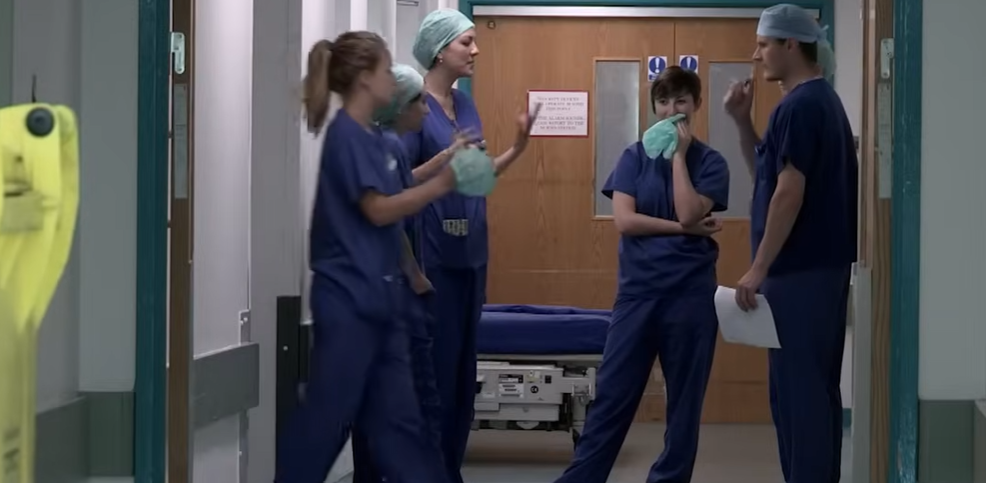The story of Mary Beth Lewis develops like a convoluted drama that combines obsession, love, and the unrelenting quest for motherhood. She was a mother of fifteen children and a trained nurse who inspired both awe and incredulity with her bold choices. Once hailed as a victory for contemporary fertility science, her journey has since evolved into a warning about identity, boundaries, and the ethical price of desire.
She started out as a loving mother of five daughters, raising them while juggling her pilot husband Bob Lewis’s long absences and the uncertain life of a nurse. Being a mother at a young age was challenging but rewarding. But her desire to care for others never went away—in fact, it grew stronger. Shortly before her fiftieth birthday, she gave birth to twin girls, and in her mid-fifties, she had another daughter and twin boys. Her family had grown to ten members by the time she turned fifty-five. That would have taken a lifetime for most people, but Mary Beth saw it as just a chapter in her life.
She underwent IVF once more at the age of 59 using donor sperm and eggs, giving birth to her eleventh and twelfth children. Her thirteenth child was born three years later, when she was sixty-two. Her health was in danger, and the moral boundaries were starting to become hazy, so her doctors had advised her to stop. However, her will to carry on her mother’s legacy triumphed over both marital consent and medical caution.
Personal and Professional Information
| Category | Details |
|---|---|
| Full Name | Mary Beth Lewis |
| Age | 68 years old |
| Profession | Retired Nurse |
| Spouse | Bob Lewis (Retired FedEx Pilot) |
| Number of Children | 15 (including twins born via surrogacy) |
| Birthplace | Upstate New York, USA |
| Notable For | Giving birth to her 13th child at age 62 and facing charges of surrogacy fraud |
| Legal Status | Facing 30 criminal charges for forgery and surrogacy misconduct |
| Net Worth | Estimated family wealth of over $2 million (combined pensions and savings) |
| Reference Source | Daily Mail – Wealthy Nurse Mary Beth Lewis 15 Kids Case |

Her husband, Bob Lewis, a FedEx pilot who had seen the skies from above, was grounded by a storm at home. He had a great deal of love for his kids, but as Mary Beth’s goals became more audacious, he lost patience. Biology had shut the door on her desire for more children. Her next frontier was surrogacy, a choice that would upend the stability of her family.
Mary Beth allegedly deceived an IVF clinic into implanting embryos into a surrogate mother, faked Bob’s signature, and posed as him during a Zoom court appearance. She even went so far as to make a phony Zoom account in which she pretended to be her husband and stated that he was “traveling in Japan,” while she grunted to confirm his existence. It was skillfully done deception, but it was motivated more by passion than by malice.
The plan worked—for a while. There were fifteen Lewis children in total after the surrogate gave birth to twins. However, Bob’s discovery rocked their home when court documents arrived in their mailbox. The disclosure caused a legal storm in addition to a breakup in the marriage. He informed the police about her behavior, which led to a 30-count criminal case that has since captured the public’s interest.
Comparisons to well-known families like the Duggars of 19 Kids and Counting, whose extravagant homes became cultural talking points, were inevitable for onlookers. However, Mary Beth’s story is portrayed with hints of secrecy, control, and relentless pursuit, in contrast to the Duggars’ faith-driven family empire. Her story touches on issues that contemporary society faces, such as the emotional burden of motherhood that transcends the bounds of nature, ethical science, and fertility autonomy.
Despite being charged with a crime, Mary Beth maintained her remarkable defiance. With a statement that was both unrepentant and human, she declared, “This is bullcrap for what I did to get all these fricking felonies.” She saw it as extreme devotion rather than fraud. But to the law, it was a complex breach of legal process and trust.
The 2023 twins became the focus of an agonizing custody battle. After caring for them since birth, they were first placed with a foster couple who now want to adopt them. The battle for custody is still going on even though a recent court decision officially acknowledged Mary Beth and Bob as their parents. The emotional toll is clear; every court victory seems insignificant in light of the children’s uncertain future and the broken family bonds.
Slowly, Bob’s annoyance gave way to grudging sympathy. He never intended to have children, but he stayed faithful to them in spite of everything. However, the once stable marriage now exudes a subdued disillusionment. If something were to happen to their elderly parents, their older daughters—some of whom have their own families—would have to take on the role of caregiver.
The Mary Beth Lewis case has implications for morality, the law, and psychology. Discussions concerning parental identity and the expectations society places on women’s maternal instincts are sparked by her story. Given that science makes almost anything possible, it raises the question of whether love can excuse dishonesty. Once a personal matter, fertility now presents extremely difficult ethical and technological intersections.
From a wider angle, her story has sparked discussions regarding American surrogacy laws and reproductive regulations. Despite being extreme, legal experts contend that her actions expose weaknesses in remote court verification systems and digital consent. Others draw attention to the emotional void that frequently motivates this kind of behavior—an unmet desire to care for others that is exacerbated by aging and a sense of purposelessness.

